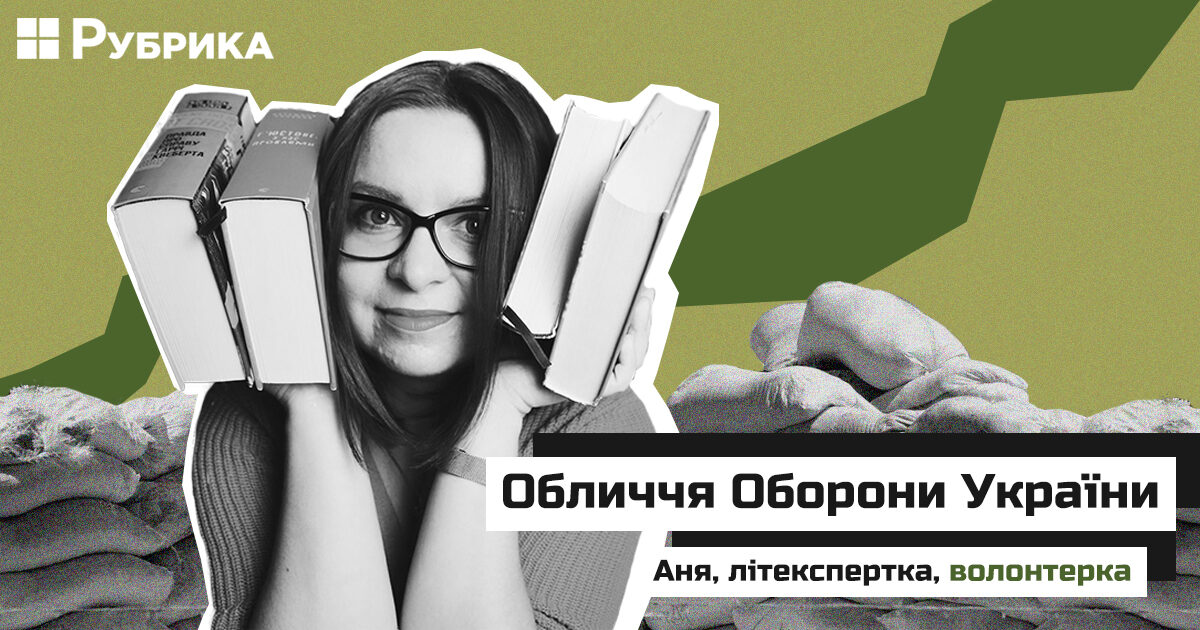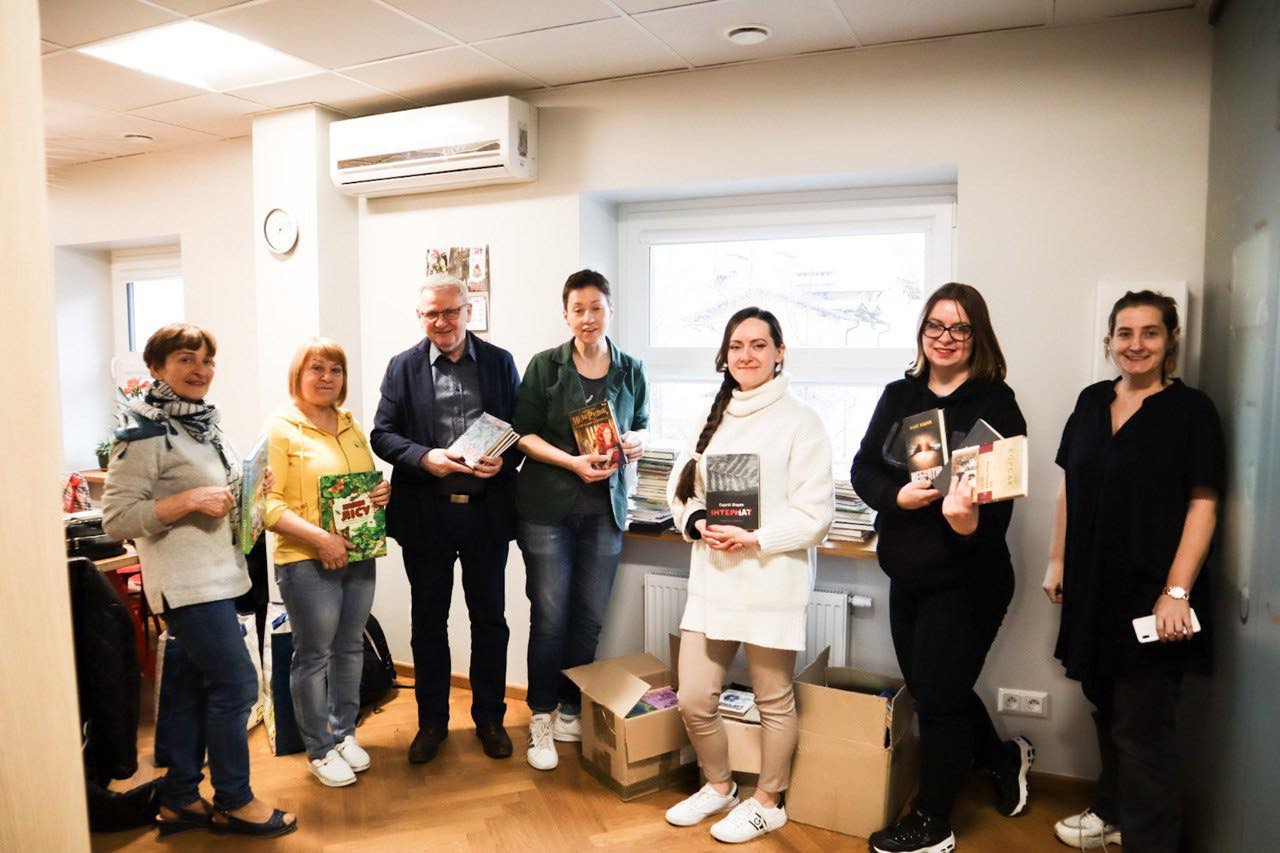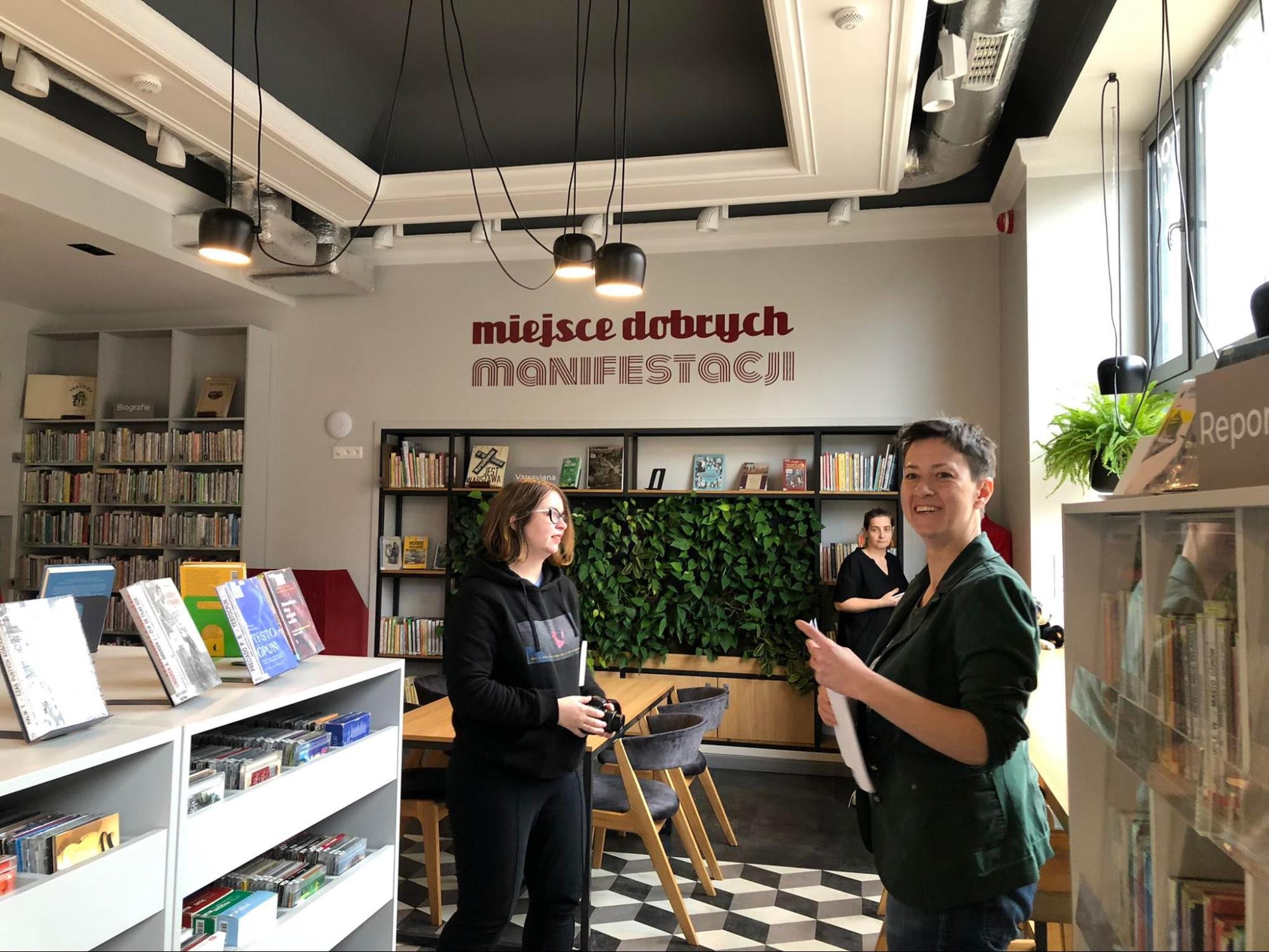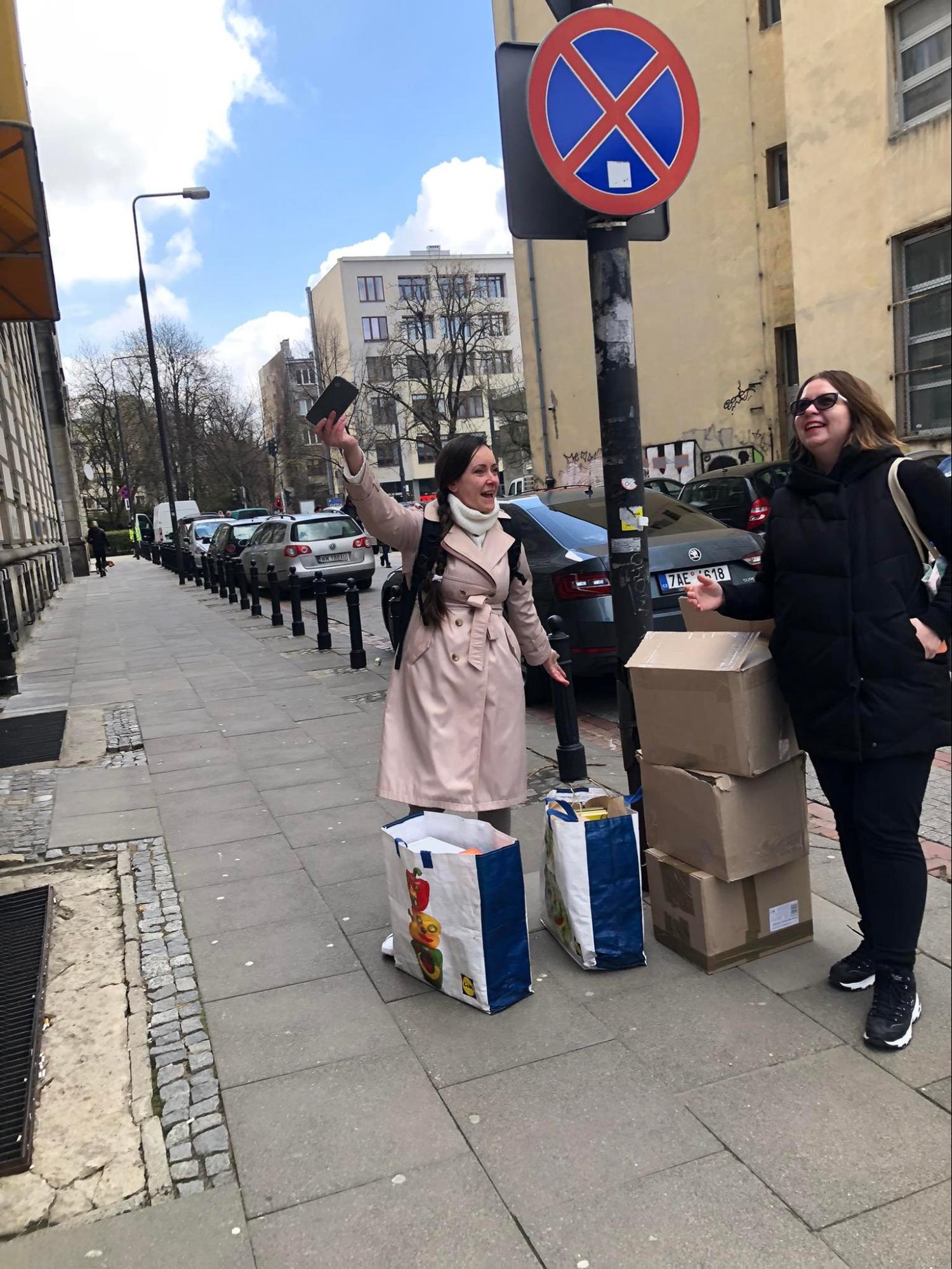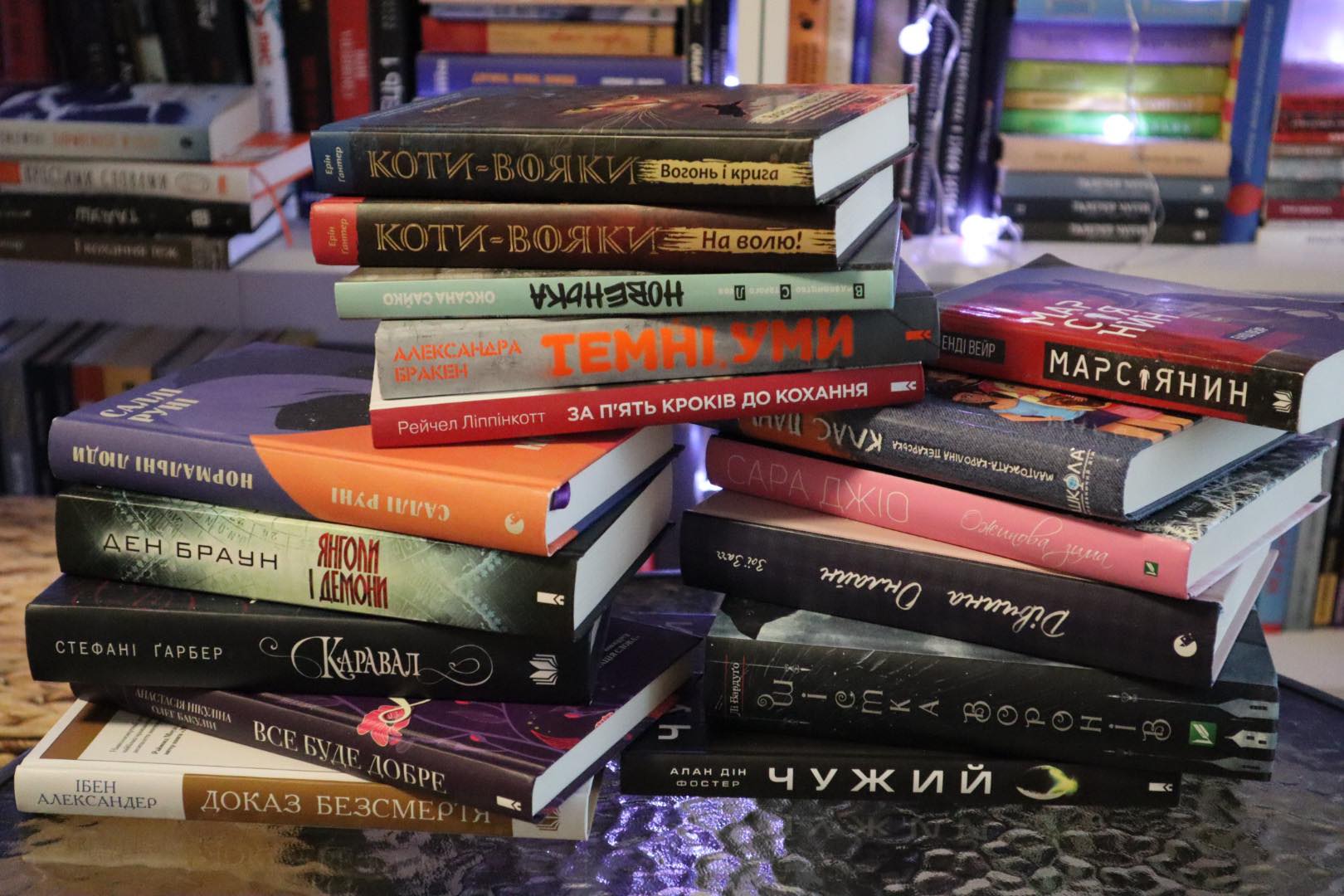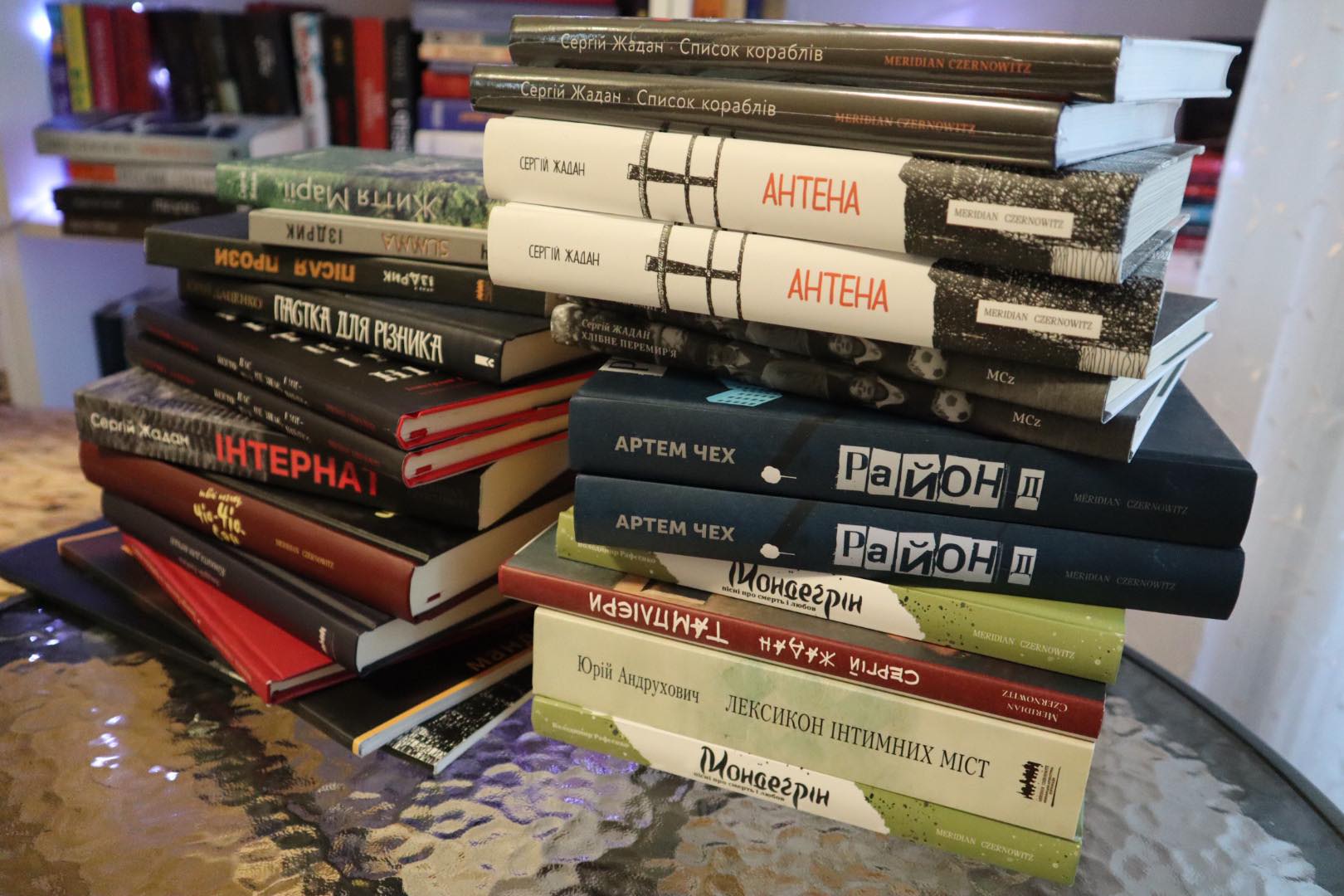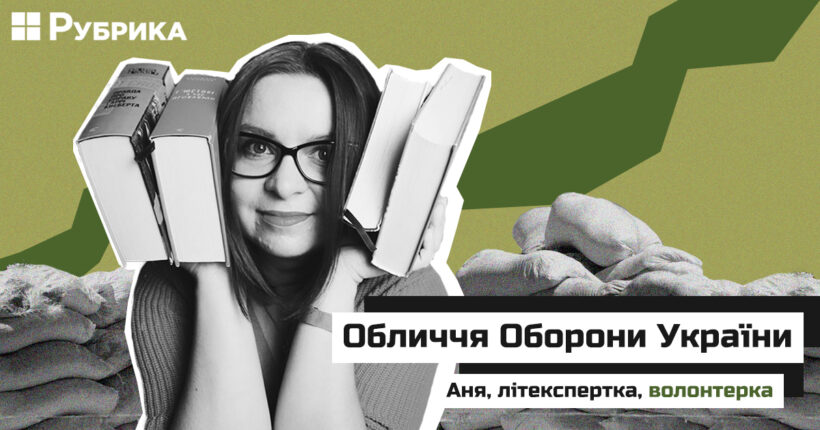
The books are carefully arranged on the white shelf: Sofia Andrukhovych's Amadoka, Andrii Liubka's MUR, Halyna Shyian's Behind Your Back, and dozens of other Ukrainian writers. Anna sits next to the books, and the camera focuses on her tired eyes. The woman begins to speak. She still owes money for that new camera. But now it's not the time to think about it. Now the war is unfolding faster and faster.
"It is probably the tenth take because I'm afraid of choosing the wrong words and not saying what I think. First, I want to ask: how are you? It is the most painful and important question of the ongoing war—a war that lasts eight years…"
So Anna begins her first video from the beginning of a full-scale invasion. Until February 24, Anna Yekymenko-Polishchuk was a book blogger, moderator, and co-organizer of the Frontera literature fest. The day before the war, she officially became an expert at the Ukrainian Book Institute. On February 24, the first rocket struck her city. Since then, besides the above, she has been helping internal migrants seeking shelter in Lutsk, volunteering a lot, and bringing Ukrainian books to Poland so that people far from home could touch a part of it.
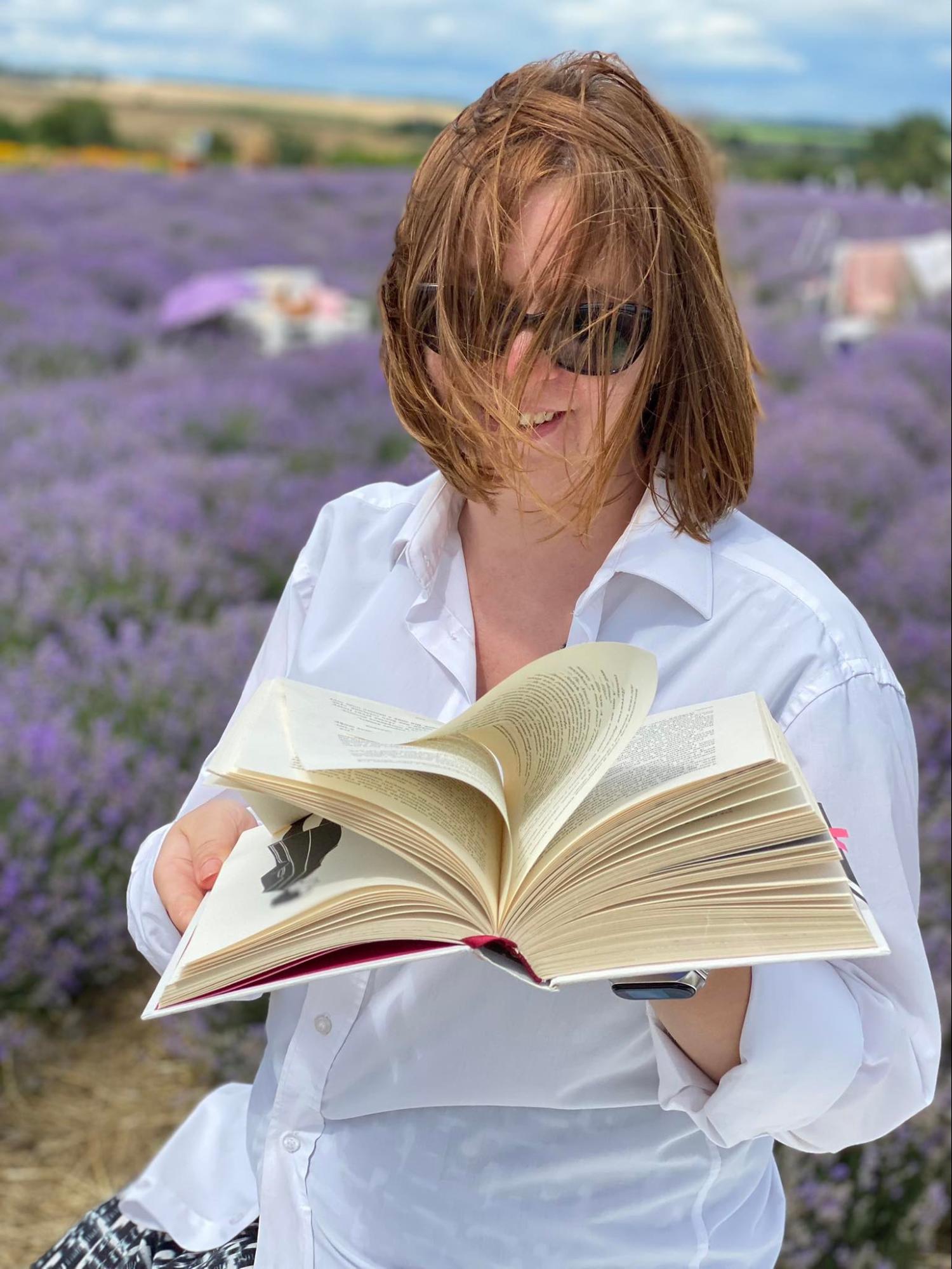
"Kittens, the war has begun!"
"On February 24, Vitalii, my husband, had an order at work. He left early, and I began to doze off and realized I heard explosions. I was terrified because I didn't understand what to do. I ran to the window and the balcony, realizing I couldn't see anything. For the first few minutes, I had no mobile service; I couldn't get through to anyone. Then I managed to phone Vitalii. He said that he was near the house and was coming back.
I went to Telegram to read the news. I have a blogger chat, and one of the guys wrote there: 'Kittens, the war has begun.' And the girls have already started writing who is planning to go where."
It is how Anna describes the beginning of a full-scale invasion. She says that since her beloved Radio Kultura always talked about emergency kits and suitcases, she and her husband put together a backpack, where she packed valuables, money, and some clothes. They started to walk around with these kits three days before the invasion.
"When Vitalii returned, we put magnets and photos that are dear to us into our backpacks. Then we first went to my mother in the village because they didn't know how to act. There was no notification system, and no one understood what to do. So the first days we were in the village.
We stayed in the village for a week, and my parents came. We went back to Lutsk several times to see what was here, to bring food to places where people needed it. But we realized we couldn't do it for that long," Anna says. Then the story of volunteering begins.
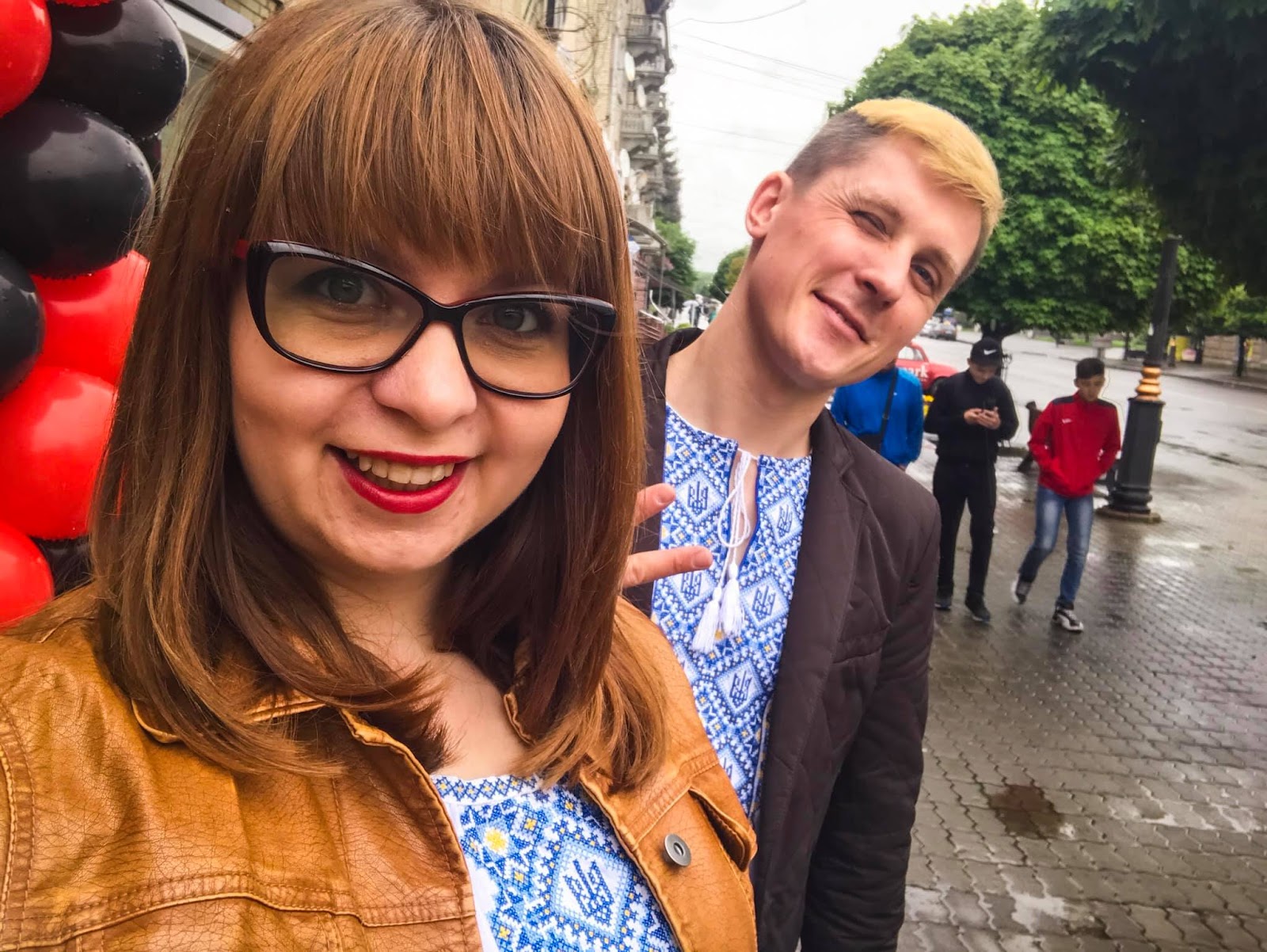
"Dad, does it mean the war is over, and we won?"
"Adrenalin" is an entertainment center in Lutsk with a museum inside and a whole hostel of its own. In late February, activists transformed it into a shelter for displaced people and a location for training in tactical medicine and other survival skills. Anna and Vitalii started coming there.
"I said that we're available to help in the shelter, and that's how it started. At that time, the hostel received migrants. They told us that the hostel director is now cleaning alone and barely cooks because many employees have left. We got to know her and stayed.
Next, we started deploying the second part of the shelter in the cafe. We had to arrange sleeping places for people on the floor. Many moved on, and many stayed until they found an apartment. At the beginning of hostilities, when both children were afraid and parents were fearful for their children, they were practically not allowed to leave their rooms. We realized that children have nowhere to play. I wrote on Facebook that we are looking for children's toys and all that. We made a whole marketing move by setting up a play area right next to the dining room because that's where everyone goes. Everything was done so that first, one child sat down to play. Then others sat down to play, and the children and parents began to come out, and in this way, we were able to enliven it all, give people more opportunities to talk to each other," Anna recalls.
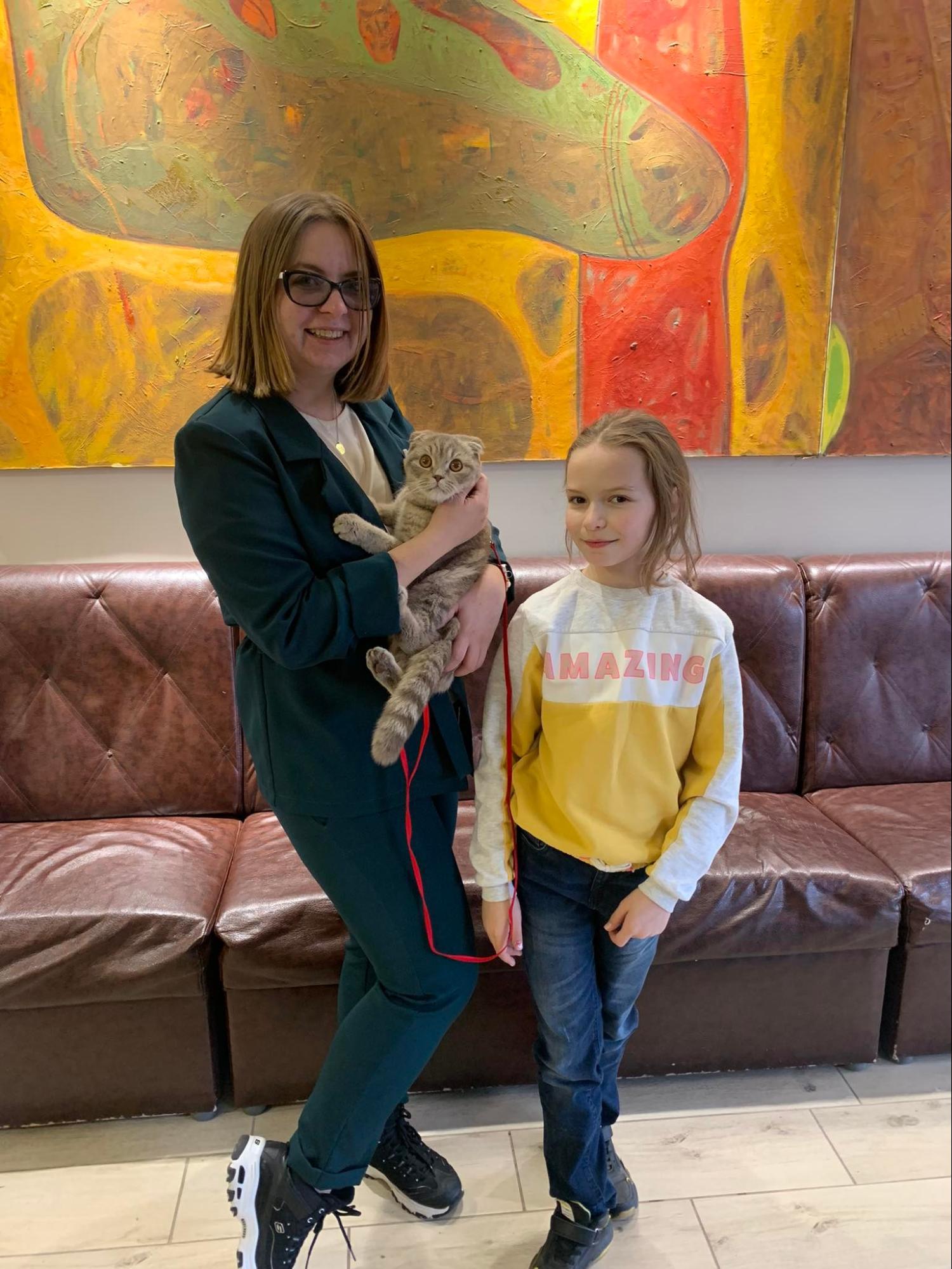
She says that for her, this entire war story is about children. Anna remembers a seven-year-old boy named Vladik, an active kid who didn't let anyone in the shelter forget about him even for a moment. His mother was about to give birth and often went to the hospital with her husband. Anna entertained Vladik on such days.
"We sit with him, look at a book, I ask what animals he knows. And he answers: 'My mother drove me to Askania Nova before the war.' The child is seven years old, but he very clearly said: 'before the war.' At 7, he clearly divided the world into what was before and now.
When his mother gave birth, they were already moving out of the shelter, and his father told him to say goodbye because now they would live in an apartment. And he asked: "Dad, does it mean that the war is over and we won?"
"More than a thousand books"
A little less than a month after the great war started, Anna returned to her book blog on YouTube. There she is a book dealer who talks about modern Ukrainian literature, advises how to read more, and shares videos from book presentations that she moderates. One day she realized that despite the rockets in the air, Ukrainian content was not the last place on the list of needs.
"I pulled myself together because I thought it was necessary. People now need Ukrainian content and some relief. Even I read books now that I wouldn't have read before the war.
But people understand that it's normal to have a hobby. It's important to buy books, and it's vital to support publishers because they're doing a great job now. None of the books coming out now will have the same commercial success they would have before February 24. These are losses. Book publishing is a business. Now the publishers break even, but they continue to work. Almost all major publishing houses have resumed work," says Anna.
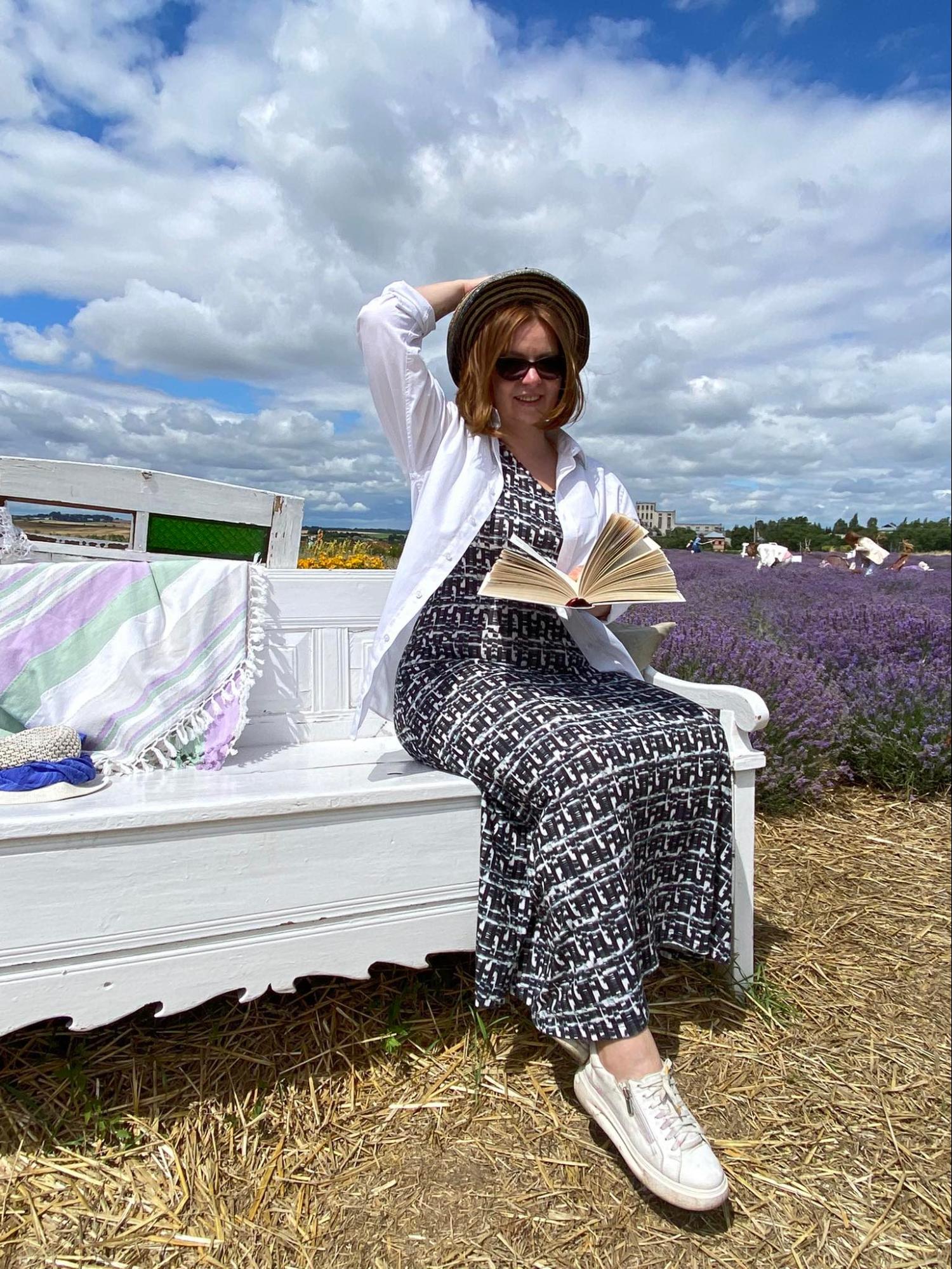
A close friend of Anna's, also a book blogger, Yulia Nahliuk, temporarily moved to Poland. There she met librarians who shared the problem with her—Ukrainians come to libraries in Warsaw, and there is nothing to offer them in Ukrainian. Anna doesn't waste her time after that.
"In Lutsk, we involved the Frontera fest and the Runika bookstore in Rivne. Bookstore Ye became a collection point, and that's how we started collecting books. Meanwhile, Yulia persuaded me to come. At that time, I had already been volunteering at the hostel for a month. Every day I heard harrowing stories; we learned about Bucha, so everyone's emotional state was terrible.
I took these books and was taken away with my boxes full of books. There was no one to help us, so my friend and I took those five boxes and brought them to the library. I told the librarians that it was only the first batch, and they stood in shock and said, 'now we will have more Ukrainian books than Polish ones.'
Then we also handed over books with the help of volunteers, and only a few weeks ago, we already sent the last four boxes of books to the library in Warsaw. In total, we handed over more than a thousand books," Anna shares.
Thanks to the donated books, the libraries could make book clubs for Ukrainians in Warsaw possible. Yulia continues to take care of them, and Anna occasionally joins in.
"I will take my husband to the Sea of Azov"
In her blog, the woman continues to talk about books. She also remains an integral part of the Frontera literature fest team. Anna flaunts her book achievements: when her little godson was preparing to leave Irpin, and his parents asked him to put the most valuable things in his knapsack, he put six books.
When we ask Anna about the three things she will do after winning, this answer concerns literature too:
"I will definitely take my husband to the Sea of Azov because I have been trying to do it since 2014 and something always gets in the way. It is my small but significant dream.
Second, I want to go to Kharkiv. I always put off this trip because I didn't understand why I should go there; if it is an industrial city, there are no castles, and it is a long time to go there from Lutsk! Now I really want to go there. I hope that there will be some kind of literary festival. As a last resort, I can visit publishing houses to see how books are made. After all, the city that [Serhii] Zhadan [famous Ukrainian writer, ed.] runs through throughout the war is already worth attention.
Third, I want to thank all our writers who went to war and are now defending us: I have a list of authors currently at the front. I want to hug them. I spoke with one person to whom I said that maybe we would cross paths somewhere, and he told me that I owe him a beer in Lviv, so there must be beer in Lviv," Anna said smiling.
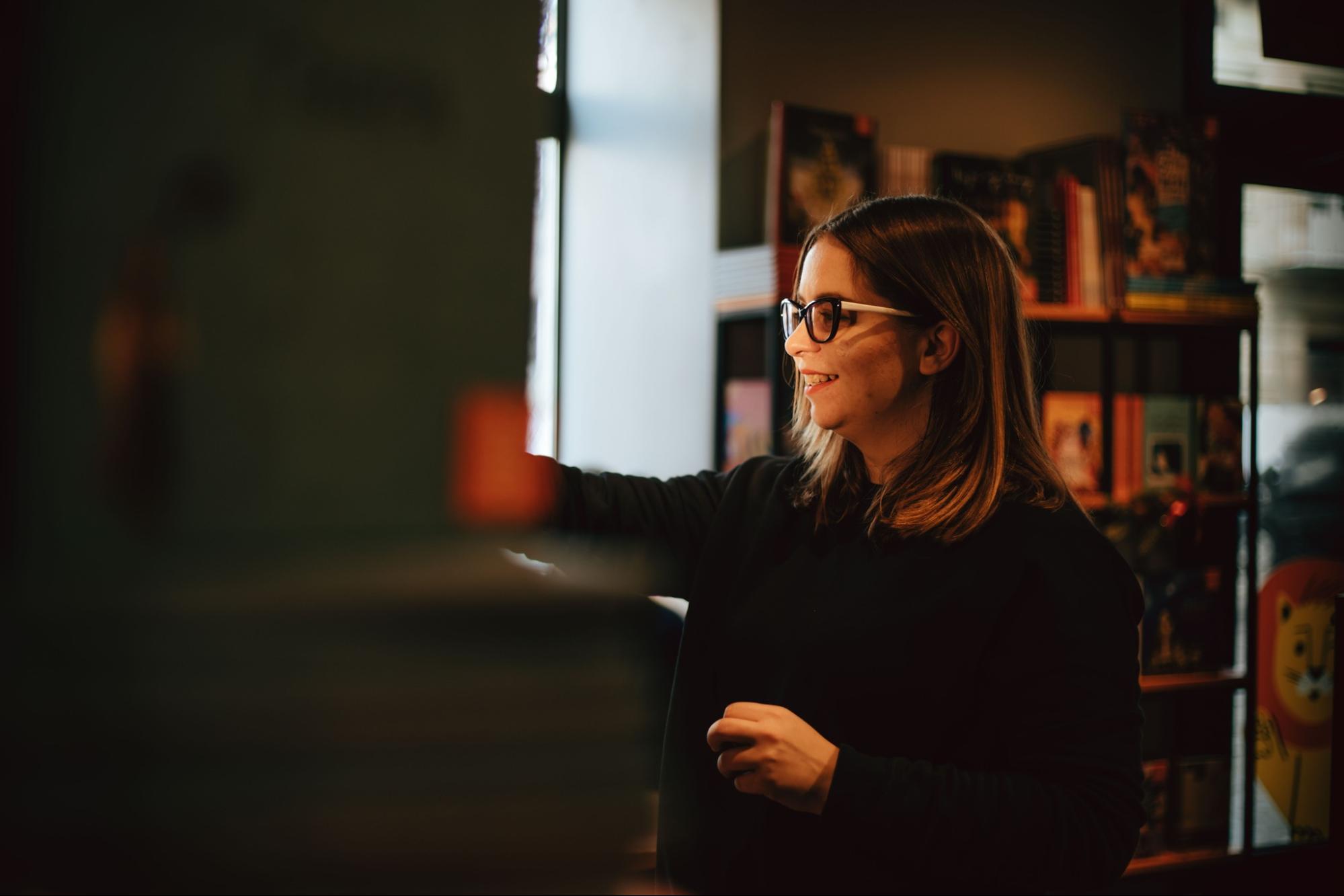
Newsletter
Digest of the most interesting news: just about the main thing




